

A Level History Topics
- Post author By admin
- Post date October 9, 2021
- No Comments on A Level History Topics
The following list of A Level History topics will help you to understand exactly which topics you are studying and how your course is broken down in terms of assessment. This post covers all the three main exam boards of AQA, Edexcel and OCR.
No matter which exam board and modules you are studying in order to get your best result at A Level History you will need to learn and improve certain techniques.
Pass A Level History – is our sister site, which shows you step by step, how to most effectively answer any A Level History extract, source or essay question. Please click the following link to visit the site and get access to your free preview lesson. www.passalevelhistory.co.uk

AQA Assessment Breakdown
Historical Investigation (Coursework) – 20% of final grade
Breadth Study (Exam) – 40% of final grade
Depth Study (Exam) – 40% of final grade
AQA A Level History Topics
Component 1: Breadth study
1A The Age of the Crusades, c1071–1204
1B Spain in the Age of Discovery, 1469–1598
1C The Tudors: England, 1485–1603
1D Stuart Britain and the Crisis of Monarchy, 1603–1702
1E Russia in the Age of Absolutism and Enlightenment, 1682–1796
1F Industrialisation and the people: Britain, c1783–1885
1G Challenge and transformation: Britain, c1851–1964
1H Tsarist and Communist Russia, 1855–1964
1J The British Empire, c1857–1967
1K The making of a Superpower: USA, 1865–1975
1L The quest for political stability: Germany, 1871–1991
Component 2: Depth study
2A Royal Authority and the Angevin Kings, 1154–1216
2B The Wars of the Roses, 1450–1499
2C The Reformation in Europe, c1500–1564
2D Religious conflict and the Church in England, c1529–c1570
2E The English Revolution, 1625–1660
2F The Sun King: Louis XIV, France and Europe, 1643–1715
2G The Birth of the USA, 1760–1801
2H France in Revolution, 1774–1815
2J America: A Nation Divided, c1845–1877
2K International Relations and Global Conflict, c1890–1941
2L Italy and Fascism, c1900–1945
2M Wars and Welfare: Britain in Transition, 1906–1957

Edexcel Assessment Breakdown
Research Enquiry (Coursework) – 20% of grade
Breadth Study with Interpretations (Exam) – 30% of grade
Depth Study (Exam) – 20% of grade
Themes in Breadth + Aspects in Depth (Exam) 30% of grade
Ed Excel A Level History Topics
Breadth study with interpretations
1A: The crusades, c1095–1204
1B: England, 1509–1603: authority, nation and religion
1C: Britain, 1625–1701: conflict, revolution and settlement
1D: Britain, c1785–c1870: democracy, protest and reform
1E: Russia, 1917–91: from Lenin to Yeltsin
1F: In search of the American Dream: the USA, c1917–96
1G: Germany and West Germany, 1918–89
1H: Britain transformed, 1918–97
Depth study
2A.1: Anglo-Saxon England and the Anglo-Norman Kingdom, c1053–1106
2A.2: England and the Angevin Empire in the reign of Henry II, 1154–89
2B.1: Luther and the German Reformation, c1515–55
2B.2: The Dutch Revolt, c1563–1609
2C.1: France in revolution, 1774–99
2C.2: Russia in revolution, 1894–1924
2D.1: The unification of Italy, c1830–70
2D.2: The unification of Germany, c1840–71
2E.1: Mao’s China, 1949–76
2E.2: The German Democratic Republic, 1949–90
2F.1: India, c1914–48: the road to independence
2F.2: South Africa, 1948–94: from apartheid state to ‘rainbow nation’
2G.1: The rise and fall of fascism in Italy, c1911–46
2G.2: Spain, 1930–78: republicanism, Francoism and the re-establishment of democracy
2H.1: The USA, c1920–55: boom, bust and recovery
Themes in breadth with aspects in depth
30: Lancastrians, Yorkists and Henry VII, 1399–1509
31: Rebellion and disorder under the Tudors, 1485–1603
32: The Golden Age of Spain, 1474–1598
33: The witch craze in Britain, Europe and North America, c1580–c1750
34.1: Industrialisation and social change in Britain, 1759–1928: forging a new society
34.2: Poverty, public health and the state in Britain, c1780–1939
35.1: Britain: losing and gaining an empire, 1763–1914
35.2: The British experience of warfare, c1790–1918
36.1: Protest, agitation and parliamentary reform in Britain, c1780–1928
36.2: Ireland and the Union, c1774–1923
37.1: The changing nature of warfare, 1859–1991: perception and reality
37.2: Germany, 1871–1990: united, divided and reunited
38.1: The making of modern Russia, 1855–1991
38.2: The making of modern China, 1860–1997
39.1: Civil rights and race relations in the USA, 1850–2009
39.2: Mass media and social change in Britain, 1882–2004

OCR Assessment Breakdown
Topic Based Essay (Coursework) – 20% of grade
British Period Study and Enquiry (Exam) – 25% of grade
Non-British Period Study (Exam) – 15% of grade
Thematic Study and Interpretations (Exam) – 40% of grade
OCR A Level History Topics
British Period Study and Enquiry
Alfred and the making of England 871—1016
Anglo-Saxon England and the Norman Conquest 1035—1107
England 1199—1272
England 1377—1455
England 1445—1509: Lancastrians, Yorkists and Henry VII
England 1485—1558: the early Tudors
England 1547—1603: the late Tudors
The early Stuarts and the origins of the Civil War 1603—1660
The making of Georgian Britain 1678 — c. 1760
From Pitt to Peel: Britain 1783—1853
Liberals, Conservatives and the rise of Labour 1846—1918
Britain 1900—1951
Britain 1930—1997
Non-British Period Study
The rise of Islam c. 550 — 750
Charlemagne 768—814
The Crusades and the crusader states 1095—1192
Genghis Khan and the explosion from the Steppes c. 1167 — 1405
Exploration, Encounters and Empire 1445—1570
Spain 1469—1556
The German Reformation and the rule of Charles V 1500—1559
Philip II 1556—1598
African kingdoms c. 1400 — c. 1800: four case studies
Russia 1645—1741
The rise and decline of the Mughal Empire in India 1526—1739
The American Revolution 1740—1796
The French Revolution and the rule of Napoleon 1774—1815
France 1814—1870
Italy and unification 1789—1896
The USA in the 19th Century: Westward expansion and Civil War 1803 — c. 1890
Japan 1853—1937
International relations 1890—1941
Russia 1894—1941
Italy 1896—1943
Democracy and dictatorships in Germany 1919—1963
The Cold War in Asia 1945—1993
The Cold War in Europe 1941—1995
Apartheid and reconciliation: South African politics 1948—1999
Thematic Study and Historical Interpretations
The early Anglo-Saxons c. 400 — 800
The Viking age c. 790 — 1066
English government and the Church 1066—1216
The Church and medieval heresy c. 1100 — 1437
The Renaissance c. 1400 — c. 1600
Rebellion and disorder under the Tudors 1485—1603
Tudor foreign policy 1485—1603
The Catholic Reformation 1492—1610
The ascendancy of the Ottoman Empire 1453—1606
The development of the nation state: France 1498—1610
The origins and growth of the British Empire 1558—1783
Popular culture and the witchcraze of the 16th and 17th centuries
The ascendancy of France 1610—1715
The challenge of German nationalism 1789—1919
The changing nature of warfare 1792—1945
Britain and Ireland 1791—1921
China and its rulers 1839—1989
Russia and its rulers 1855—1964
Civil Rights in the USA 1865—1992
From colonialism to independence: The British Empire 1857—1965
How To Improve at A Level History
Previous and next blog posts.
Previous – Revise A Level History Using Content and Technique – passhistoryexams.co.uk/revise-a-level-history-using-content-and-technique-to-revise-history/
Next – A Level History Questions – A Do and Avoid Guide – http://passhistoryexams.co.uk/a-level-history-questions-do-and-avoid-guide
Leave a Reply Cancel reply
You must be logged in to post a comment.

History Coursework: how to Choose the Best Question
- Dr Janet Rose
- June 13, 2020
So, just when you thought your first A-level History year was over and you could relax before tackling next year, you have to think about your history coursework. This will be the non-exam assessment (NEA) or Historical Investigation. It can cause a lot of angst amongst students but taking some time and thinking it through carefully before you start can make the world of difference.
1. Choose to study something interesting for your history coursework
If you have the chance to choose whichever topic you like for your history coursework and set your own question, or if you are given a list of different topics, choose one you are genuinely interested in. You will be working on this piece for months, so it makes sense to choose something that will hold your interest.
2. Make sure there are no clashes with your other topics
In practice, there are constraints set by the various exam boards to make sure that your topic does not overlap with the components you are already studying for your A level or Pre U. Your exam centre (school, college or independent centre) will need to have your question approved by the exam board and they will not approve a topic with an obvious overlap. For example, if you are already studying the Tudors for AQA, it is unlikely that you can study a topic set in England between 1485 to 1603. Therefore, if you are setting your own question, ask yourself if it overlaps in date or topic with one of your components. If it does, you will need to find an alternative. Each exam board has slightly different rules, so check on their website to see what the rules are for your exam board.
3. Find your source material early
For your history coursework, you will need to find two types of source material – primary and secondary:
P rimary sources are those that were written at the time and you will also need to find a range of these to support your investigation. To achieve high marks you should look for a variety of primary sources, for example, a letter, a report, a painting, a speech etc.
Secondary sources are scholarly books or articles by historians, or what the a-level exam boards call ‘interpretations.’ this means that your investigation will only be viable if historians have written about the topic and, preferably, argued over it. you will need to understand the arguments that provide a framework for your chosen topic. historians call this the historiography..
Therefore, the question you set yourself will only be able to achieve high marks if you make sure there are both secondary sources (scholarly argument) and primary sources (original material) to support your investigation. If you cannot find these, you should re-think your question.

4. Remember you actually have to answer the question!
It sounds really obvious – but remember that you actually have to answer the question you set yourself! You need to choose something that is achievable in the time frame and gives you a good chance of success. A good question will give you a framework within which to research and write – you are looking for something that is not too vague nor too wide.
You also need something that you can address in the historical time frame (e.g. around 100 years for AQA) and a topic that you can analyse and evaluate in approximately 3, 500 words (check the word limit for your own exam board). In practice, any question that is too wide, too vague or unlikely to be achievable should be vetoed either by your school/college/independent centre or the exam board. However, this will waste your valuable time and is not totally foolproof, so choose an achievable project to give yourself a fighting chance of achieving that elusive A grade.
5. Choose a good format for your history coursework question
The standard ‘for and against’ question format will always be a good choice and will give you a framework within which to set your investigation. There are various ways to word such a question e.g. ‘How far…’, To what extent…’ ‘Within the context of … how important was…’ which will give you a clear framework and a direction for your investigation. Keep it simple is good advice here. Remember, though, to define your framework by including the date range in your question. For example ‘Within the context of 1790 to 1890, how important was…?’
Done well, the NEA or Personal Investigation will teach you a huge amount about how historians work, how sources are used and how to construct an argument. This will help you enormously when you come to the final exams and it can be a very valuable contribution to your qualification. It can also be enjoyable as it is your first chance to ‘do’ some real historical research. Choose your question with care and you automatically give yourself a head start.
Exam Board History Coursework Guidance
AQA Guidance
Cambridge Pre U Guidance
OCR Guidance
Edexcel Guidance
Need a history tutor to reach your full potential?
Find a qualified tutor.
Or contact our knowledgeable office team for a bespoke tutor match
The Tutor Team Guarantee
How can we help you, share this post.
0333 987 4603

- Privacy Policy
- Handbook & Policies
Privacy Overview

- Revision notes >
A-Level History Revision Notes
Condensing complex subjects into concise, easily digestible formats, these A-Level History revision notes serve as mini study guides, highlighting key concepts and exam topics. Use these to pinpoint areas where you feel you need to focus and make more effective use of your study sessions. Our History tutors are also on-hand for support if you feel that things are getting on top of you.
How can I revise for the A-Level History exams with so much to cover?
Begin by creating a structured revision plan that allocates specific time slots to different historical periods or topics. Use a variety of study resources such as textbooks, primary sources, and reputable websites. Develop concise, topic-based notes to capture key events, figures, and historical contexts. Engage in active revision by creating timelines, mind maps, or flashcards to visualize connections and themes across different periods.
How can I improve my essay writing skills for the essay-based questions in A-Level History exams?
To enhance your essay writing, focus on constructing clear and structured arguments. Start with a strong introduction that outlines your main thesis and provides a roadmap for your essay. Use the PEEEL method (Point, Evidence, Explanation, Evaluation, Link) to craft each paragraph, ensuring your points are well-supported by historical evidence and critical analysis. Include historical context and diverse interpretations to showcase a deep understanding. Regularly practice timed essays under exam conditions to improve your time management and refine your writing style.
How can I effectively remember key dates, events, and figures for A-Level History exams without getting overwhelmed?
Develop mnemonic techniques or memory aids to remember important details. For example, create acronyms or rhymes that include significant events or timelines. Organize your notes chronologically to establish a clear historical timeline. Additionally, make use of visual aids like timelines, charts, or concept maps to visualize the sequence of events and the relationships between them. Regularly review and quiz yourself on these details to reinforce your memory and recall during the exam.
Let's get acquainted ? What is your name?
Nice to meet you, {{name}} what is your preferred e-mail address, nice to meet you, {{name}} what is your preferred phone number, what is your preferred phone number, just to check, what are you interested in, when should we call you.
It would be great to have a 15m chat to discuss a personalised plan and answer any questions
What time works best for you? (UK Time)
Pick a time-slot that works best for you ?
How many hours of 1-1 tutoring are you looking for?
My whatsapp number is..., for our safeguarding policy, please confirm....
Please provide the mobile number of a guardian/parent
Which online course are you interested in?
What is your query, you can apply for a bursary by clicking this link, sure, what is your query, thank you for your response. we will aim to get back to you within 12-24 hours., lock in a 2 hour 1-1 tutoring lesson now.
If you're ready and keen to get started click the button below to book your first 2 hour 1-1 tutoring lesson with us. Connect with a tutor from a university of your choice in minutes. (Use FAST5 to get 5% Off!)
This website works best with JavaScript switched on. Please enable JavaScript
- Centre Services
- Associate Extranet
- All About Maths
AS and A-level History
- Specification
- Planning resources
- Teaching resources
- Assessment resources
- Introduction
- Specification at a glance
- 1A The Age of the Crusades, c1071–1204
- 1B Spain in the Age of Discovery, 1469–1598 (A-level only)
- 1C The Tudors: England, 1485–1603
- 1D Stuart Britain and the Crisis of Monarchy, 1603–1702
- 1E Russia in the Age of Absolutism and Enlightenment, 1682–1796 (A-level only)
- 1F Industrialisation and the people: Britain, c1783–1885
- 1G Challenge and transformation: Britain, c1851–1964
- 1H Tsarist and Communist Russia, 1855–1964
- 1J The British Empire, c1857–1967
- 1K The making of a Superpower: USA, 1865–1975
- 1L The quest for political stability: Germany, 1871–1991
- 2A Royal Authority and the Angevin Kings, 1154–1216
- 2B The Wars of the Roses, 1450–1499
- 2C The Reformation in Europe, c1500–1564 (A-level only)
- 2D Religious conflict and the Church in England, c1529–c1570
- 2E The English Revolution, 1625–1660
- 2F The Sun King: Louis XIV, France and Europe, 1643–1715 (A-level only)
- 2G The Birth of the USA, 1760–1801
- 2H France in Revolution, 1774–1815 (A-level only)
- 2J America: A Nation Divided, c1845–1877
- 2K International Relations and Global Conflict, c1890–1941 (A-level only)
- 2L Italy and Fascism, c1900–1945
- 2M Wars and Welfare: Britain in Transition, 1906–1957
- 2N Revolution and dictatorship: Russia, 1917–1953
- 2O Democracy and Nazism: Germany, 1918–1945
- 2P The Transformation of China, 1936–1997
- 2Q The American Dream: reality and illusion, 1945–1980
- 2R The Cold War, c1945–1991
- 2S The Making of Modern Britain, 1951–2007
- 2T The Crisis of Communism: The USSR and the Soviet Empire, 1953–2000 (A-level only)
- Component 3: Historical investigation (non-exam assessment) (A-level only)
- Scheme of assessment
- Non-exam assessment administration
- General administration
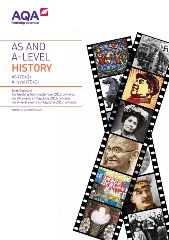
Subject content
The AS component content is designed to be co-teachable with the first part of the corresponding full A-level component content – or it can be taught as a stand-alone course.
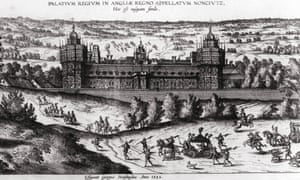
The top 10 most popular history topics taught to A-level students – in pictures
- Share on Facebook
- Share on Twitter
- Share via Email
Although modern history is favoured, the Tudors still prove popular, according to new research by the exam group Cambridge Assessment, which looked at what options schools chose from the OCR history course
Sarah Marsh
Wed 13 Aug 2014 07.00 BST Last modified on Wed 13 Aug 2014 09.56 BST
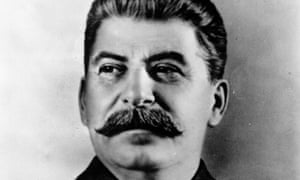
- Teacher Network
- Teacher's blog
More galleries
View all comments >.
- recommendations
Most popular
All about A level History – course information
What's a level history about.
History is the study of the past. It examines the political, economic, social and cultural issues of different era and cultures. At its most ambitious, the subject is the study of everything.
Of course, in A level History you won't be expected to learn everything from the Battle of Hastings in 1066 to the Cold War, but you will cover enough in breadth and depth to develop a good understanding of events in their historical context, and to develop an historian's approach to the past. "Why was a particular course of action followed?" is a fundamental question underlying the study of history, and its primary purpose is not to judge but to comprehend.
From an intellectual standpoint, A level History is about the acquisition of vital learning skills: you need to be able to read and digest large amounts of information and to pick out what is and is not relevant to the question you are dealing with. History will teach you how to analyse, reflect and to argue clearly in class and in writing.
Across all exam boards A level History students study particular events in depth and in broader outline papers: for example the OCR paper on the Early Tudors 1485-1558 also requires the much more focused source-based examination of the 1547-58 Mid Tudor Crisis. Each exam board offers different 'outline' and 'in depth' topics, (see OCR's specification as an example), though your college is likely to have picked the combination of outline and specific topics it will teach you.
The rewards are many! The enjoyment and intellectual stimulation you get when you've securely understood the topic are considerable. This is when arguments can be formed and you can involve yourself in the cut-and-thrust of historical debate. Your ideas will be revived or challenged and you are bound to establish new perspectives.
What sort of work is involved ?
- Reading around the topics and researching are key elements of A level History.
- Historians need to be effective at making notes: grouping information according to themes and noting different sorts of evidence (dates, statistics and quotes).
- You will learn to evaluate source-material: understanding a document in relation to who wrote it and when it was composed.
- Writing essays is a major part of any History course. Learning how to assemble information into a thematic and analytical response to the specific question posed. Read The Economist and The Guardian style guide for examples of effective writing.
Your teacher will guide you through the topics and techniques required. You will need to supplement this work through your own reading and note-taking.
A key feature of most A level History courses in the second year is the 3000-4000 word independently researched assignment. This can often be on a topic of your choosing and needs to be based on primary and secondary material. This is excellent preparation for the skills required at university.
What background do I need ?
History GCSE, although useful, is not essential for the study of History A Level. It is more important that you have or can develop an analytical and precise writing-style. You will also need to assimilate a great deal of information and to assess what is valid for a particular question. History also works well with almost any combination of other A level subjects.
Where can it lead?
History is a highly respected A level and very popular at degree level. Offers from top universities will regularly be AAA or A*AA. The analytical skills required for History A level also make it a natural foundation for anyone wishing to study Law.
A degree in History also leads to many career options: you don’t just have to become a History teacher (nothing wrong with that, of course!). The Historical Association provides a very useful overview of potential careers.
One year course?
To cover A level History in one year is perfectly manageable. It is hard work, but the skills and content can readily be covered in that time if you are organised and hard-working. History is a subject that requires excellent written skills, and it is the development of your writing skills as much as the content which will determine how well you cope. The one year course is fast-paced, but it is all the more exciting for that!
History is mainly examined through written exams at the end of the course. It is essential that you become confident in timed conditions, and a good course will ensure that you get lots of practice in writing under limited time. The majority of boards have a coursework component, but this is usually no more than 20%. CIE is the exception to this; all the exams take the form of written exams. To take OCR as an example, you sit three written exams and submit a project. The written exams cover:
- British period study and enquiry 1 hour 30 minute paper 25% of the total
- Non-British period study 30 marks 1 hour paper 15% of the total
- Thematic study and historical interpretations 2 hour 30 minute paper 40% of total
And you will complete a 3000–4000 word essay on a topic of your choice which counts for 20% of the total
The majority of questions are concerned with why events occur - e.g. "How far do you agree that tensions in the Balkans were the most important reason for the outbreak of war in 1914?" There will also be questions that ask you to analyse a source as a piece of evidence - e.g. "How useful is Source A as evidence as to why Henry VIII broke with the Catholic Church?"
This article was written by Robert Heggie Head of History at MPW College London .
The data entered on this form will be used only for the purpose of responding to your enquiry. It will not be used for sales/marketing, nor shared with any third party unless required to respond to your query (i.e. with one of our partner colleges).
- A level Art
- A level Biology
- A level Business
- A level Chemistry
- A level Classical Civilisation
- A level Computer science
- A level Drama and Theatre
- A level Economics
- A level English Language
- A level English Language and Literature
- A level English Literature
- A level Film Studies
- A level Geography
- A level History
- A level History of Art
- A level Law
- A level Maths/Further Maths
- A level Media Studies
- A level Modern Languages
- A level Music
- A level Philosophy
- A level Physics
- A level Politics
- A level Psychology
- A level Religious Studies
- A level Sociology
Return to the list of A level subjects

Interested in studying A level History?
cife independent sixth form colleges offer:
- Traditional A level History two year A level courses combining independent schools' small class sizes and emphasis on exam success with the student-centred outlook of the best state state sixth-form colleges
- Intensive, focussed and effective A level History one year A level courses
- Help starting your revision with History A level Easter revision courses
- All the benefits of small-group teaching, focus on the individual and a more adult environment to help you achieve better results from History A level resit courses

Further advice articles
- FAQs about A-level retakes and options for resitting
- Exam remarks - what to do, and when - updated for 2023
- Appealing against your A-level or GCSE results in 2023
- One year A-levels courses at CIFE colleges
- Sixth-form advice articles about university entrance...
- Sixth-form advice articles about study skills...
- Advice articles about sixth-form choices...
Need any help?
Name (required): Please leave this field empty. Email (required): Phone number: Tell us how we can help: Confirm acceptance of Privacy Policy

Courses at cife colleges
GCSE courses Two-year A level courses Final-year A level courses One-year A level courses A level retake courses University Foundation courses Easter A level & GCSE revision courses
Advice articles
FAQs about retakes Revision UCAS personal statement Tips for a top UCAS application For international students Choosing the right A levels Oxbridge and medicine interviews All advice articles
More about cife FAQ about colleges News Why colleges join cife Useful links Fees at cife colleges Contact us
History A level distance learning course
- A level Courses
- Biology A level
- Business A level
- Economics A level
- English Language A level
- English Literature A level
- French A level
- History A level
- Law A level
- Mathematics A level
- Psychology A level
- Sociology A level
- Spanish A level
- Our Money Back Guarantee
A level History Key Facts
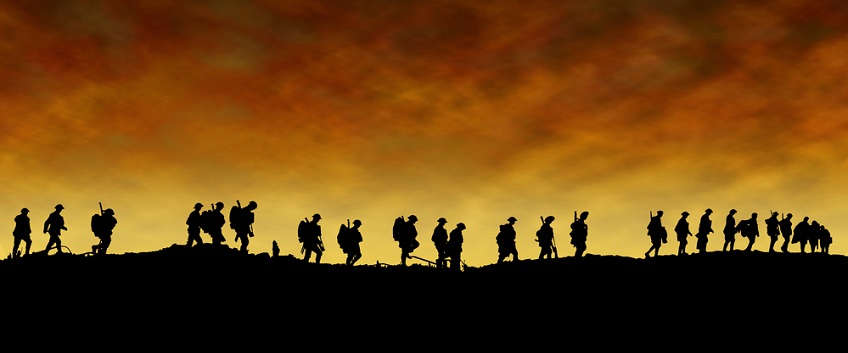
Overview of the History A level course
The History A level course matches the AQA 7042 specification. The A level specification requires students to:
- have a breadth of knowledge over at least a 200 year period
- show a depth of knowledge of a period
- engage fully with primary source materials
- study a broad and coherent curriculum
This has allowed us to develop an exciting and engaging course covering the times and subjects below.
- Specification
- Prerequisites
AS and A level topics
Introductory module: how to study history at a-level.
Before embarking on your History course, this module will help you consider the role of the historian and the priorities to be adopted as you proceed with your studies.
Module 1 – Challenge and Transformation: Britain, c1851–1964
Allows students to study in breadth issues of change, continuity, cause and consequence in this period.
Module 2 – Victorian and Edwardian Britain, c1851–1914
Reform and Challenge, c1851–c1886 Challenges to the status quo, c1886–1914
The American Dream: Reality and Illusion, 1945–1980
An in-depth study of the challenges faced by the USA at home and abroad as it emerged from the Second World War as a Superpower.
Prosperity, Inequality and Superpower status, 1945–1963
A level only topics, the world wars and their legacies: britain, 1914–1964.
- The Great War and its impact, 1914–1939
- Transformation and change, 1939–1964
Challenges to the American Dream, 1963–1980
- The Johnson Presidency, 1963–1968
- Republican Reaction: the Nixon Presidency, 1968–1974
- The USA after Nixon, 1974–1980
Coursework Module: Black American Inequality in the United States, c1780-1900
Students will be required to submit a Historical Investigation based on a development or issue which has been subject to different historical interpretations.

The History A level specification
The course has been prepared for the AQA History AS/A level specifications 7041/7042.
The AS Level
Students can sit an AS qualification independently of the full A level. The AS level is assessed by two, one hour thirty minute examinations each worth 50% of the mark. AS results no longer contribute towards the full A level result.
The complete A level
The A level is assessed by:
- Two, two hour thirty minute examinations each worth 40% of the available marks
- One 3000-3500 word Historical Investigation worth 20% of the available marks
Students will be able to achieve grades from A* to E.
Please note that the marking and moderation of NEA (coursework) by OOL tutors is included in the course fees – this is not true of other providers.
In order to study History A level students are expected
- To have obtained a minimum of 4 GCSEs at grade C/4 and above or equivalent
- Or to have other relevant qualifications or experience which would be equivalent to this. If in doubt as to what level you should be studying, please speak to one of our student advisers on 0800 9757575
Hi! We are currently open and an experienced Student Adviser is available to answer any questions you may have. Our number is 0800 9 757575
Signing up for this course allows you to apply for an NUS extra discount card
Supporting resources.
- Sample Lessons
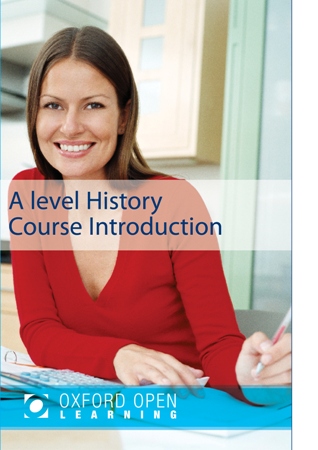
What our students think…
My prime reason for studying the course was to study, academically, a subject I was especially interested in rather than go to a local College. I wanted to work at my own pace with an organisation with specialist tutors who were experienced and sympathetic. Oxford Open Learning provided all of those things for me. My tutor, Nigel, was perfect in his support and motivated me when I was struggling. My student adviser was also always patient and timely with instructions and advice. Ron Wilson History A level

Share this page
Stay connected.
Programmes & Qualifications
Cambridge international as & a level history (9489).
- Published resources
Access to History for Cambridge International AS Level: International History 1870-1945
Endorsed by Cambridge Resources align to the syllabus they support, and have been through a detailed quality assurance process.
International History, 1870-1945 for Cambridge International AS Level History
Modern europe 1750-1921 for cambridge international as level history, the history of the usa, 1820-1941 for cambridge international as level history.
Stay up to date
Sign up for updates about changes to the syllabuses you teach
- Syllabus overview
- Past papers, examiner reports and specimen papers
OCR homepage
Administration
- Active Results
- Interchange
- Submit for Assessment
- Teach Cambridge
- ExamBuilder
- Online Support Centre
Main navigation
As and a level history a - h105, h505, specification at a glance, assessment overview.
* Indicates inclusion of synoptic assessment.
** Students who are retaking a qualification can choose either to retake the non-exam assessment unit or to carry forward their mark for that unit.
Students must take one unit from each of unit groups 1 to 3 as well as the mandatory non-exam assessment Y100 topic-based essay to be awarded the OCR A Level in History A.
Content overview
Students select a total of three topics in British and non-British history to study in three units, creating a qualification that is both broad and coherent. The topics selected must have a chronological range of at least 200 years.
Unit group 1
Study is source-based and develops different historical approaches. One topic is selected from 13 options available:
- Alfred and the making of England 871—1016
- Anglo-Saxon England and the Norman Conquest 1035—1107
- England 1199—1272
- England 1377—1455
- England 1445—1509: Lancastrians, Yorkists and Henry VII
- England 1485—1558: the early Tudors
- England 1547—1603: the late Tudors
- The early Stuarts and the origins of the Civil War 1603—1660
- The making of Georgian Britain 1678 — c. 1760
- From Pitt to Peel: Britain 1783—1853
- Liberals, Conservatives and the rise of Labour 1846—1918
- Britain 1900—1951
- Britain 1930—1997
Unit group 2
The 24 topics available in this group focus on non-British history, from the rise of Islam to the end of apartheid in South Africa, emphasising the application of historical knowledge, understanding and judgement. Students select one topic to study:
- The rise of Islam c. 550 — 750
- Charlemagne 768—814
- The Crusades and the crusader states 1095—1192
- Genghis Khan and the explosion from the Steppes c. 1167 — 1405
- Exploration, Encounters and Empire 1445—1570
- Spain 1469—1556
- The German Reformation and the rule of Charles V 1500—1559
- Philip II 1556—1598
- African kingdoms c. 1400 — c. 1800: four case studies
- Russia 1645—1741
- The rise and decline of the Mughal Empire in India 1526—1739
- The American Revolution 1740—1796
- The French Revolution and the rule of Napoleon 1774—1815
- France 1814—1870
- Italy and unification 1789—1896
- The USA in the 19th Century: Westward expansion and Civil War 1803 — c. 1890
- Japan 1853—1937
- International relations 1890—1941
- Russia 1894—1941
- Italy 1896—1943
- Democracy and dictatorships in Germany 1919—1963
- The Cold War in Asia 1945—1993
- The Cold War in Europe 1941—1995
- Apartheid and reconciliation: South African politics 1948—1999
Unit group 3
The topics in this group allow study of change and continuity over a substantial period of time, with in-depth studies focusing on interpretations of significant individuals, events, developments etc. The 21 topic options cover both British and non-British history over a period from the early Anglo-Saxons to the Arab Spring.
- The early Anglo-Saxons c. 400 — 800
- The Viking age c. 790 — 1066
- English government and the Church 1066—1216
- The Church and medieval heresy c. 1100 — 1437
- The Renaissance c. 1400 — c. 1600
- Rebellion and disorder under the Tudors 1485—1603
- Tudor foreign policy 1485—1603
- The Catholic Reformation 1492—1610
- The ascendancy of the Ottoman Empire 1453—1606
- The development of the nation state: France 1498—1610
- The origins and growth of the British Empire 1558—1783
- Popular culture and the witchcraze of the 16th and 17th centuries
- The ascendancy of France 1610—1715
- The challenge of German nationalism 1789—1919
- The changing nature of warfare 1792—1945
- Britain and Ireland 1791—1921
- China and its rulers 1839—1989
- Russia and its rulers 1855—1964
- Civil Rights in the USA 1865—1992
- From colonialism to independence: The British Empire 1857—1965
- The Middle East 1908—2011: Ottomans to Arab Spring
Topic based essay
This is an opportunity for students to bring together many of the skills developed through their work on the topics to an independently researched enquiry of their own choosing.

Both components include synoptic assessment.
Students must take one unit from each of unit groups 1 and 2 to be awarded the OCR AS Level in History A.
Students select one topic in British history and one topic in non-British history to study. There are no restrictions on which topics may or may not be combined.
Study is source-based and develops different historical approaches. One topic is selected from the options available:
- Alfred and the making of England 871—1016 (being withdrawn from 2018)
- Anglo-Saxon England and the Norman Conquest 1035—1107 (being withdrawn from 2018)
- England 1199—1272 (being withdrawn from 2018)
- England 1445—1509: Lancastrians, Yorkists and Henry VII (being withdrawn from 2018)
- England 1547—1603: the later Tudors
- The making of Georgian Britain 1678 — c. 1760 (being withdrawn from 2018)
- From Pitt to Peel: Britain 1783—1853 (being withdrawn from 2018)
- Liberals, Conservatives and the rise of Labour 1846—1918 (being withdrawn from 2018)
- Britain 1900—1951 (being withdrawn from 2018)
The 24 topics available in this group focus on non-British history, from the crusader states to the end of apartheid in South Africa, emphasising the application of historical knowledge, understanding and judgement. Students select one topic to study:
- The Crusades and the crusader states 1095—1192 (being withdrawn from 2018)
- Genghis Khan and the explosion from the Steppes c. 1167 — 1405 (being withdrawn from 2018)
- The German Reformation and the rule of Charles V 1500—1559 (being withdrawn from 2018)
- Philip II 1556—1598 (being withdrawn from 2018)
- Russia 1645—1741 (being withdrawn from 2018)
- The American Revolution 1740—1796 (being withdrawn from 2018)
- France 1814—1870 (being withdrawn from 2018)
- Italy and unification 1789—1896 (being withdrawn from 2018)
- The USA in the 19th Century: Westward expansion and Civil War 1803 — c. 1890 (being withdrawn from 2018)
- International relations 1890—1941 (being withdrawn from 2018)
- Italy 1896—1943 (being withdrawn from 2018)
- Apartheid and reconciliation: South African politics 1948—1999 (being withdrawn from 2018)


IMAGES
VIDEO
COMMENTS
Historical Investigation (Coursework) - 20% of final grade. Breadth Study (Exam) - 40% of final grade. Depth Study (Exam) - 40% of final grade. AQA A Level History Topics. Component 1: Breadth study. 1A The Age of the Crusades, c1071-1204. 1B Spain in the Age of Discovery, 1469-1598. 1C The Tudors: England, 1485-1603.
Learners develop an understanding of cause and effect, continuity and change, similarity and difference, and use historical evidence as part of their studies. Both at AS and A Level learners can select from topics on European, American or International history. Teachers choose which periods to focus on, allowing them to build a course that ...
A-level students must take assessments in all three of the following components in the same series: Component 1: Breadth study. Component 2: Depth study. Component 3: Historical investigation (Personal study) Students must: study the history of more than one country. study a British history option for Component 1 or 2.
Level 5: 9-10 Provides a range of relevant and well-supported comments on the value of three sources of two or more different types used in the investigation to provide a balanced and convincing judgement on their merits in relation to the topic under investigation. Level 4: 7-8 Provides relevant and well-supported comments on the value of ...
5. Choose a good format for your history coursework question. The standard 'for and against' question format will always be a good choice and will give you a framework within which to set your investigation. There are various ways to word such a question e.g. 'How far…', To what extent…' 'Within the context of … how important ...
A-Level History Revision Notes. Condensing complex subjects into concise, easily digestible formats, these A-Level History revision notes serve as mini study guides, highlighting key concepts and exam topics. Use these to pinpoint areas where you feel you need to focus and make more effective use of your study sessions.
Subject content. The AS component content is designed to be co-teachable with the first part of the corresponding full A-level component content - or it can be taught as a stand-alone course. Introduction. 1A The Age of the Crusades, c1071-1204. 1B Spain in the Age of Discovery, 1469-1598 (A-level only)
The study, by the exam group Cambridge Assessment, looked at how schools use the choices available to them in OCR's A-level history course. Share on Facebook Share on Twitter 2.
What's A level History about? History is the study of the past. It examines the political, economic, social and cultural issues of different era and cultures. At its most ambitious, the subject is the study of everything. Of course, in A level History you won't be expected to learn everything from the Battle of Hastings in 1066 to the Cold War ...
OCR A Level History. Past Papers. Exam paper questions organised by topic and difficulty. Our worksheets cover all topics from GCSE, IGCSE and A Level courses. Give them a try and see how you do!
The History A level course matches the AQA 7042 specification. The A level specification requires students to: ... A level only topics The World Wars and their Legacies: Britain, 1914-1964. The Great War and its impact, 1914-1939; Transformation and change, 1939-1964;
OCR A Level History A - Independent Study Guide. This is a guide to H505 History A Level Non Examination Assessed Unit Y100. It should be read in conjunction with two important documents. The first is the specification pages 105 to 113 and the second is the JCQ regulations for Non Examined Assessment which is available from.
A-Level History Meaning. According to Oxford Sixth Form College, A-level history is a respected two-year course that many universities value. It is great for preparing students in humanities and teaches important skills like questioning, arguing, and counterarguing. These skills are useful in law, politics, philosophy, and business courses.
The History of the USA, 1820-1941 for Cambridge International AS Level History. Endorsed by Cambridge. Resources align to the syllabus they support, and have been through a detailed quality assurance process. Description. Supports the American option of the syllabus for examination from 2021. This book provides increased depth of coverage and ...
The 21 topic options cover both British and non-British history over a period from the early Anglo-Saxons to the Arab Spring. The early Anglo-Saxons c. 400 — 800. The Viking age c. 790 — 1066. English government and the Church 1066—1216. The Church and medieval heresy c. 1100 — 1437. The Renaissance c. 1400 — c. 1600.
A level history coursework topics; Watch. 3 years ago. A level history coursework topics. m0llyt. 5. ... i do aqa history and my coursework is on the colonisation ad decolonisation of africa from 1865-1965 and i have found it really interesting! my only advice really is to just find sources as you go and keep up to date with it--don't leave it ...
5. So for my history coursework we have to choose a approx. 100 year period of history to study and we can pick our own question. I did originally think the stereotypical Unification of Germany but my friend and I want to apply for Oxford and she went to a shadowing thing and they hate the stereotypical coursework topics like british empire ...